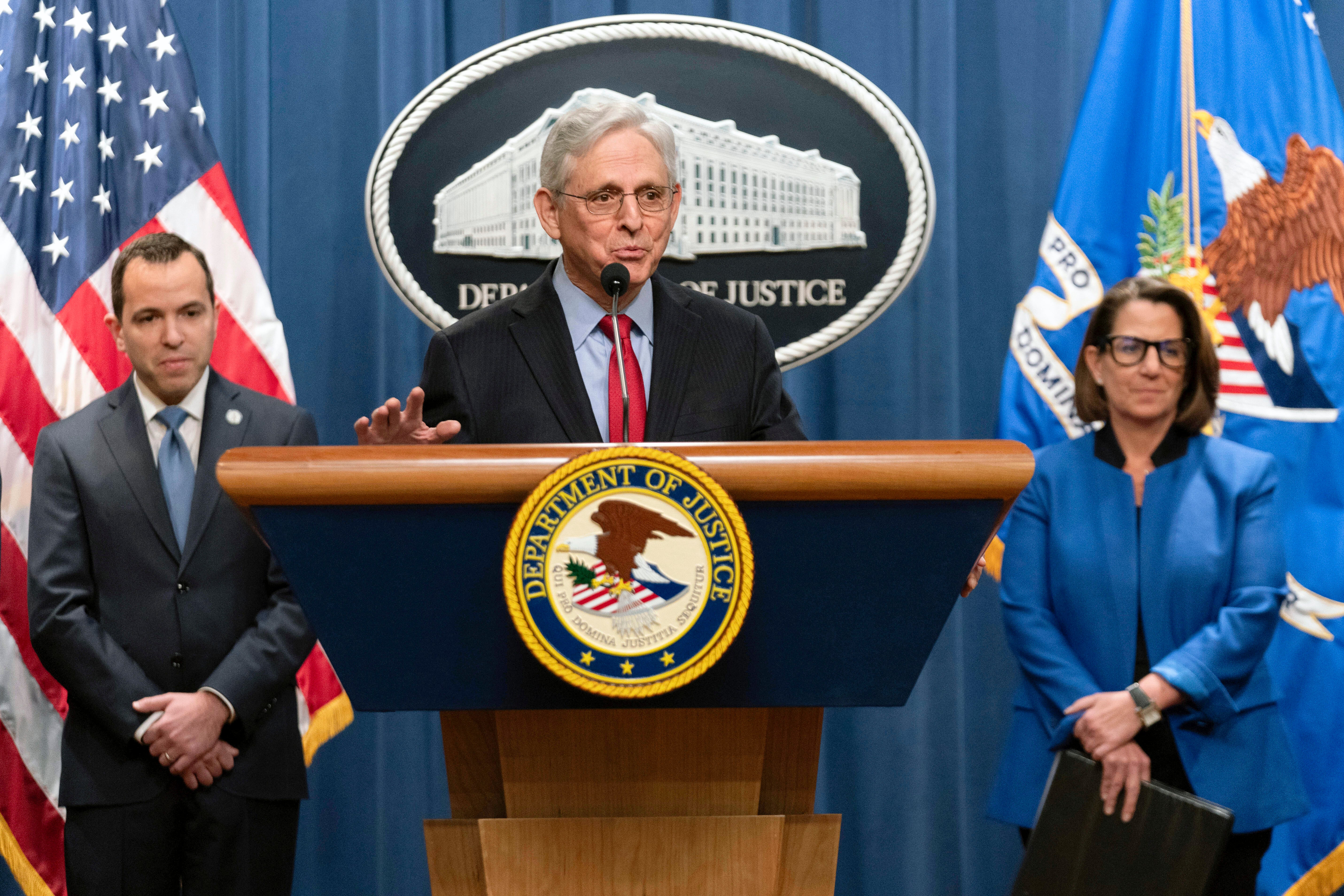
President Joe Biden has asserted executive privilege on audio recording of his interview with special counsel Robert Hur over handling of classified documents, to prevent House Republicans getting tapes of an exchange where he reportedly showed “poor memory.”
Republicans on the House Oversight Committee and House Judiciary Committee had demanded that Attorney General Merrick Garland turn over the recording of Mr Biden and Mr Hur, who investigated how classified documents ended up at the president’s Delaware home and former office in Washington, DC.
The White House rejected the demand, telling Judiciary Committee chair Jim Jordan and Oversight Committee chair James Comer that Mr Biden was heeding Mr Garland’s request to deny the GOP-led panels access to the tapes.
The attorney general told the president in a letter that “audio recordings of your interview ... fall within the scope of executive privilege”.
The decision both stops Congress accessing the recordings and shields Mr Garland from criminal contempt of Congress charges, that could emerge from a House vote expected later on Thursday.
The executive privilege decision is also in line with actions by previous administrations, including those of George W Bush, Barack Obama and Donald Trump.
Separately, Assistant Attorney General Carlos Uriarte told Mr Comer and Mr Jordan that the GOP plan to hold Mr Garland in contempt of Congress would not have any legal validity.
He cited “the longstanding position of the executive branch held by administrations of both parties that an official who asserts the President’s claim of executive privilege cannot be prosecuted for criminal contempt of Congress”.

Still, it is expected that Republicans will nonetheless claim that the decision is politically motivated, as the White Hous has also done on the GOP’s demand for the recordings.
In a letter to Mr Comer and Mr Jordan, obtained by The Independent, White House counsel Edward Siskel admonished the committee chairs for turning the investigations against the president into a circus, and accused them of seeking to “undermine the very independence and impartiality of the Department of Justice”.
Mr Siskel added that the White House had not asserted privilege over the release of Mr Hur’s report to Congress, nor had it blocked the special counsel from sitting for a marathon hearing with lawmakers in the Judiciary and Oversight committees.
White House officials issued sharp denouncements of the report in March after it was released to Congress, in particular over one section of the report which questioned the 81-year-old’s ability to recall the date of his son Beau’s death. Later releases detailing that portion of the president’s testimony seemed to throw Hur’s assertion of the president’s memory problems into doubt.
Another section which rankled allies of the president involved Hur’s determination that a jury would likely find the president to come off as a “sympathetic, well-meaning, elderly man with a poor memory”. Democrats argued that the special counsel went to undue lengths to politicise his description of the president in this and other instances.
Mr Hur’s report stated there was evidence that Mr Biden had mishandled classified materials. But the former Trump-appointed US Attorney wrote that he had not found that Mr Biden had done so “wilfully” — and had therefore not met the legal standard under which he could be charged.
The special counsel did not recommend criminally charging Mr Biden, in part due to the perceived difficulty of convincing a jury that he intentionally violated the law.
The decision was a blow to Republicans, who have sought any and all avenues to embarrass Mr Biden as their own candidate for the White House, Mr Trump, faces a historic 88 felony charges including two criminal prosecutions related to his attempt to thwart the peaceful transfer of power in 2020.
Nonetheless, the House committees have been pushing for the recording despite having the transcript of Mr Biden’s words, in hopes of using the audio content in campaign advertisements meant to damage him politically.
Mr Siskel told Mr Comer and Mr Jordan that the transcripts and other written materials that they’ve already received “more than satisfy [their] articulated needs for this information”.
The White House counsel noted that neither chair had articulated a legitimate legislative purpose for the audio recordings.
“The absence of a legitimate need for the audio recordings lays bare your likely goal—to chop them up, distort them, and use them for partisan political purposes. Demanding such sensitive and constitutionally-protected law enforcement materials from the Executive Branch because you want to manipulate them for potential political gain is inappropriate,” he said.
House Speaker Mike Johnson, a Louisiana Republican, slammed the White House’s action and accused Mr Biden of suppressing the tape because he’s afraid to have voters hear it during an election year.
“The American people will not be able to hear why prosecutors felt the President of the United States was, in Special Counsel Robert Hur’s own words, an ‘elderly man with a poor memory,’ and thus shouldn’t be charged,” he said while addressing reporters on the Capitol steps.
But Representative Jamie Raskin of Maryland, the Oversight Committee’s ranking Democrat, told The Independent on Thursday that the sturm-und-drang over the recording of Mr Biden is the latest example of his GOP colleagues being “unable to take yes for an answer,” citing their previous demand for the transcript of the interview and supporting documents from the investigation.
Asked whether he agrees with the White House and Justice Department about the motivations of his Republican colleagues, he replied: “Yeah, I assume, but they’re basically running out the clock because their investigation is a spectacular, world historical flop”..







